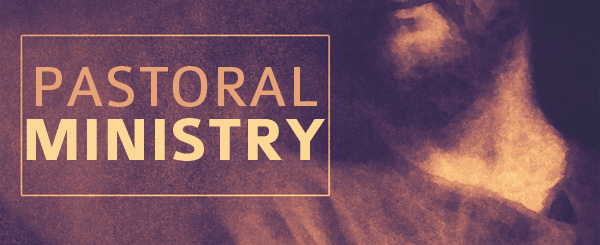Earlier this week we looked at “The Elder’s Noble Traits” from 1 Timothy 3:1-7. As Carson says, these traits are all gloriously unremarkable because they are required of all Christian men. But there is one trait not required of all men: that they be able to teach.
In Lectures to My Students Spurgeon said:
The pulpit is the Thermopylae of Christendom: there the fight will be lost or won.
To us ministers the maintenance of our power in the pulpit should be our great concern, we must occupy that spiritual watch-tower with our hearts and minds awake and in full vigor. It will not avail us to be laborious pastors if we are not earnest preachers.
We shall be forgiven a great many sins in the matter of pastoral visitation if the people’s souls are really fed on the Sabbath-day; but fed they must be, and nothing else will make up for it.
The failures of most ministers who drift down the stream may be traced to inefficiency in the pulpit. The chief business of a captain is to know how to handle his vessel, nothing can compensate for deficiency there, and so our pulpits must be our main care, or all will go awry.
Teaching then is not only the elder’s ordinary weapon for war, it is also his rudder for directing and steering the church.
NOBLE TEACHING
Along with the words of management and oversight we have in this text, the qualification that elder be able to teach gives us great insight into his work. All the noble traits we just looked at speak to his character, this one speaks more to his work – to his competency. Remember, the Ephesian church that Timothy pastored had been infiltrated by teachers, so Timothy’s role as an overseer necessarily meant that he be able to teach sound doctrine. And this is the qualification that distinguishes the office. Deacons might be able to teach, but such ability is not required. It is for elders.
James 3:1 says, “Not many of you should become teachers . . . for you . . . will be judged with greater strictness.” The Bible then does not expect that everyone in the church will be able to teach. So what does this qualification mean? I actually think the way Paul articulate this qualification in Titus 1:9 is more helpful; there he says the elders “must be able to give instruction in sound doctrine and also to rebuke those who contradict it.” It’s one thing to be able to instruct in sound doctrine, it’s even better to also be able to refute false doctrine. An elder should able to communicate and apply the truth of Scripture with clarity, coherence, and fruitfulness.
A common question then is, “Does an elder have to be able to preach in front of hundreds?” I would say yes and no. He need not be Charles Spurgeon nor John Piper; he just need be able to clearly and accurately teach Scripture in an edifying way. The ability to teach doesn’t equate to Piperion grandeur in preaching or Spurgeon-esque power in rhetoric. The overwhelming majority of elders, and thus teachers, are humble men who ably bring a humble offering of the word whenever and wherever they are asked to do so.
An elder is to teach. Paul does not give us much about the elder’s work here in 1 Timothy. If we were to survey the Bible’s teaching on eldering or shepherding we could break up the pastor’s labor into four main areas: knowing, feeding, leading, and protecting. For this of course is what shepherds do. Which leads us then to the most important thing to note when talking about elders and shepherds . . . they are “under-shepherds.”
They are to be an earthly reflection of the church’s chief shepherd (1 Pet. 5:4), Jesus Christ. In John 10 we find Jesus say, “I am the good shepherd. I know my own and my own know me, just as the Father knows me and I know the Father; and I lay down my life for the sheep.” Faithful “under-shepherds” then are men that are to model the character of Christ (noble traits) and teach the glory of Christ (noble teaching).

